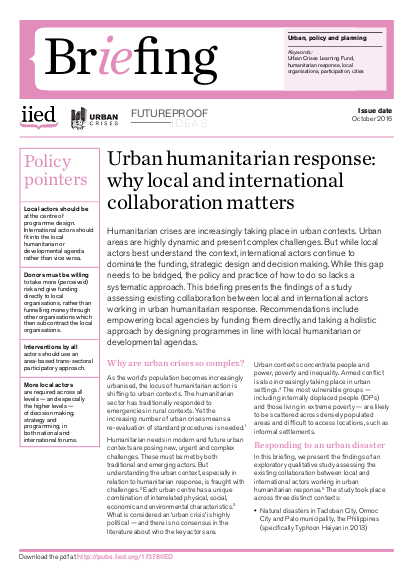
Humanitarian crises are increasingly taking place in urban contexts. Urban areas are highly dynamic and present complex challenges. But while local actors best understand the context, international actors continue to dominate the funding, strategic design and decision making. While this gap needs to be bridged, the policy and practice of how to do so lacks a systematic approach.
This briefing presents the findings of a study assessing existing collaboration between local and international actors working in urban humanitarian response. Recommendations include empowering local agencies by funding them directly, and taking a holistic approach by designing programmes in line with local humanitarian or developmental agendas.
Resource collections
- Coordination
- UN Habitat - Urban Response Collection
- Urban Response - Urban Crisis Preparedness and Risk Reduction
- Urban Response Collection - Community Engagement and Social Cohesion
- Urban Response Collection - Economic Recovery
- Urban Response Collection - Environment and Climate Change
- Urban Response Collection - Housing, Land and Property
- Urban Response Collection - Urban Crisis Response, Recovery and Reconstruction
- Urban Response Collection - Urban Resilience